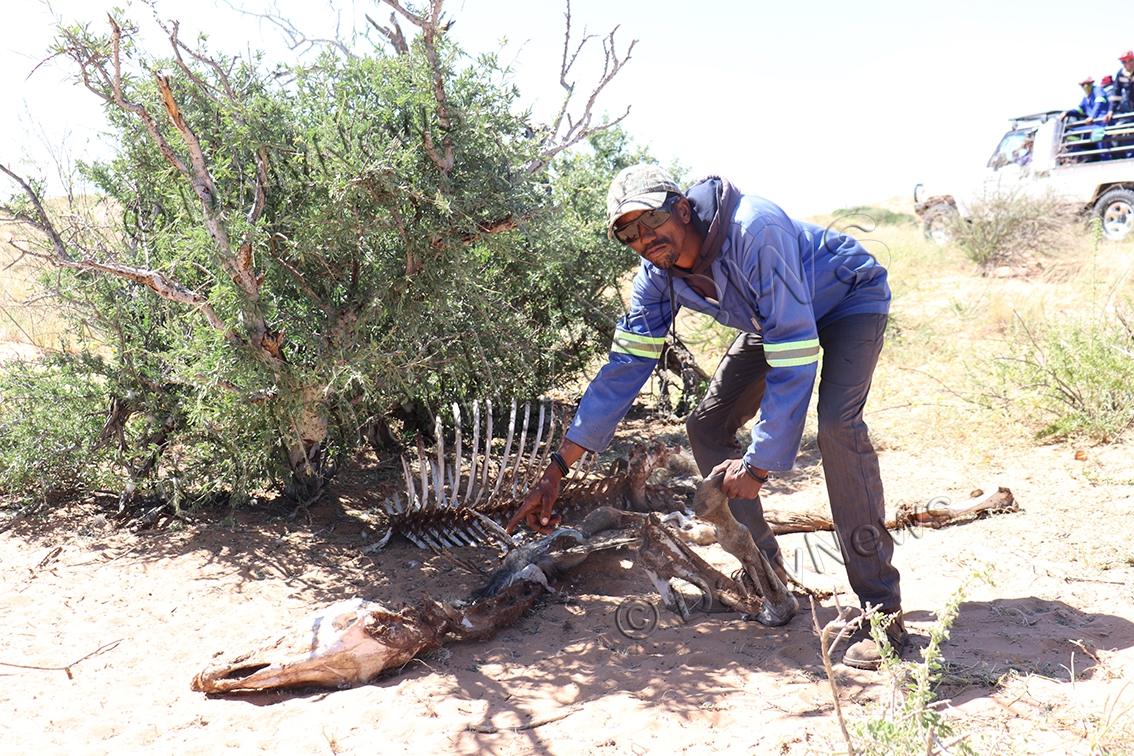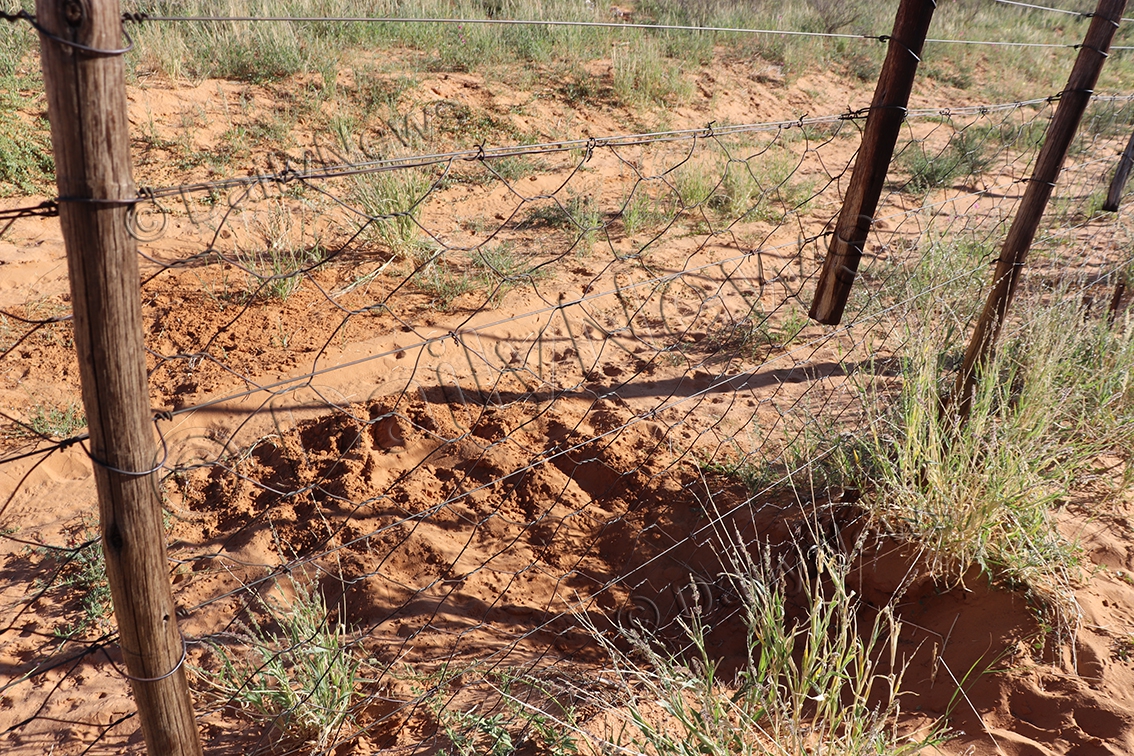Human-wildlife conflict intensifies
20 May 2024
In a daring pursuit laden with both thrill and peril, I find myself on the cusp of a mind-boggling lion tracking expedition near the renowned tourism hotspot of Khawa.
For over three months, these majestic creatures have struck fear into the hearts of local farmers.
With a mix of excitement and trepidation, our journey begins as we navigate the sandy terrain in a sturdy 4X4 Toyota Land Cruiser, expertly driven by Kebakile Hambira.
Our mission, under the guidance of the Department of Wildlife and National Parks, is to track a pride of five lions that have been wreaking havoc on livestock in the vicinity of Khawa.
Fully aware of the lion’s predatory prowess, I steel myself for the adventure ahead, knowing the tales of anguish and devastation these lions have left in their wake, particularly under the cover of night.
Accompanied by Dr Evans Monamati, armed with a dart gun and essential tools, our group of about 20 individuals sets out to confront this menace head-on.
The focus is on capturing and relocating the lions to areas within the park abundant with wildlife, away from human settlements.
The intricate dance between conservation efforts and the protection of livelihoods unfolds as we traverse the landscape, following the trail of the elusive predators.
The farmers reported that a pride of lions had escaped from the park and skinned alive a horse belonging to one of the farmers.
“We have noticed that they are cunning creatures who spend the day at their territory in the park and sneak out at night to kill livestock then sneak back into the park.
The solution is to capture them and take them closer to where there is more wildlife inside the park.
“Lions belong to the cat family, they have instincts and they can think of how to survive when they are hungry.
As we can see, they have dug under the fence to get to their prey,” Mr Monamati says pointing at a big hole under the predator proof fence dotted with lion footprints going out and inside the park.
Despite the presence of a predator-proof fence meant to safeguard communal areas, the lions have exhibited cunning behavior, breaching the barrier to satisfy their hunger.
Dr Monamati points out the challenges posed by the lions’ movements, emphasising the need for collective action to safeguard both the endangered species and the local farmers.
As we track the lions through the wilderness, our efforts are met with obstacles, highlighting the complex nature of human-wildlife conflicts.
Farmers like Mr Ezekiel van der Westhuizen share their harrowing experiences of losing livestock to these predators, underscoring the urgent need for sustainable solutions to mitigate such conflicts.
The Department of Wildlife and National Parks reports a concerning rise in incidents of human-wildlife conflict, as large carnivores like lions increasingly come into contact with livestock.
With compensation payouts mounting and resources stretched thin, innovative strategies are being considered to balance the needs of conservation and human safety in the region.
As the sun sets on our expedition, the challenges posed by human-wildlife conflict loom large, underscoring the delicate balance between preserving nature and safeguarding livelihoods in this wild and untamed landscape.
According to Department of Wildlife and National Parks acting regional wildlife officer for Kgalagadi, Ms Thatayaone Menyatso they have received 76 incident reports for the year 2023/2024 where 120 animals were killed and some injured.
In the financial year 2022/23, they received 61 reports where 136 livestock was affected, while in the financial year 2021/22, they received 70 reports where 157 livestock was killed and some injured.
“All the incidents were conflict between livestock and large carnivores. Lion conflict increased over 100 per cent when compared to the 2022/2023 financial year,” she says.
During 2023/2024 financial year, a total of P173 385 was paid as compensation to farmers for damage caused by predators, when compared to P65 530 in year 2022/2023.
“This sharp increase can be attributed to increased lion conflict,” she says. ENDS
Source : BOPA
Author : Calviniah Kgautlhe
Location : KHAWA
Event : Interview
Date : 20 May 2024







